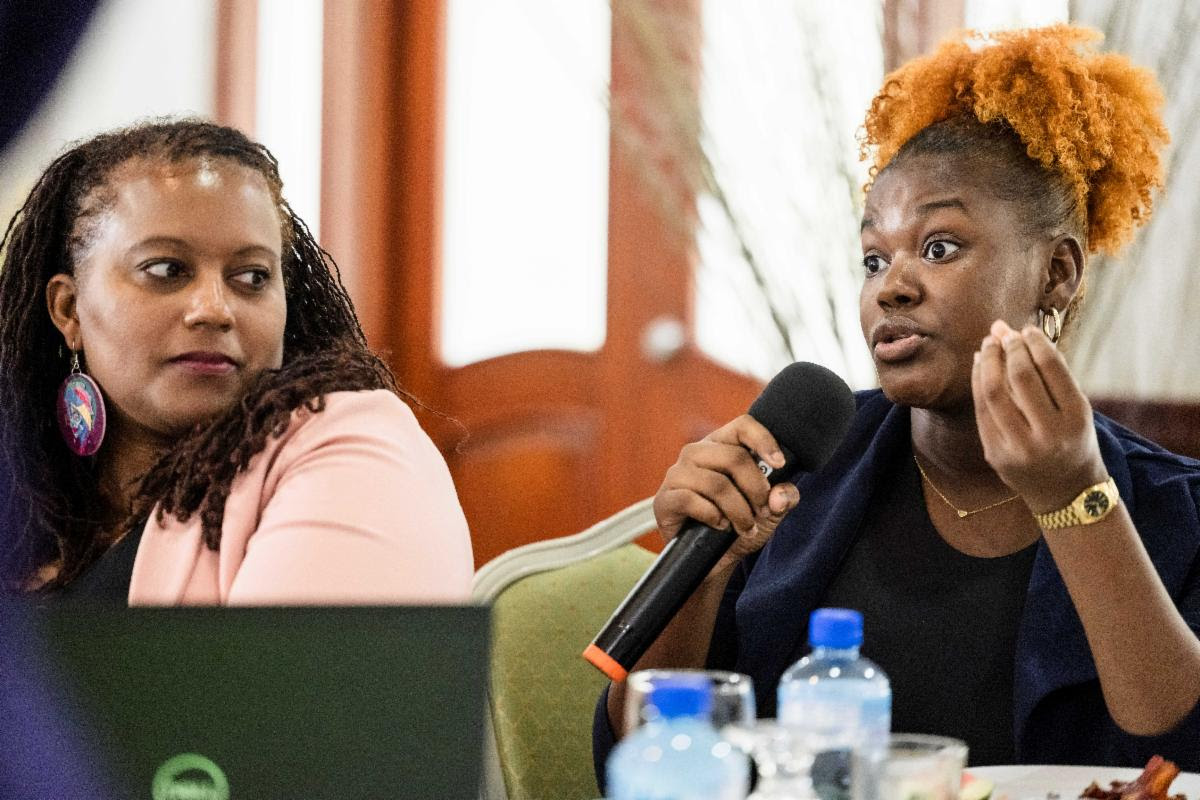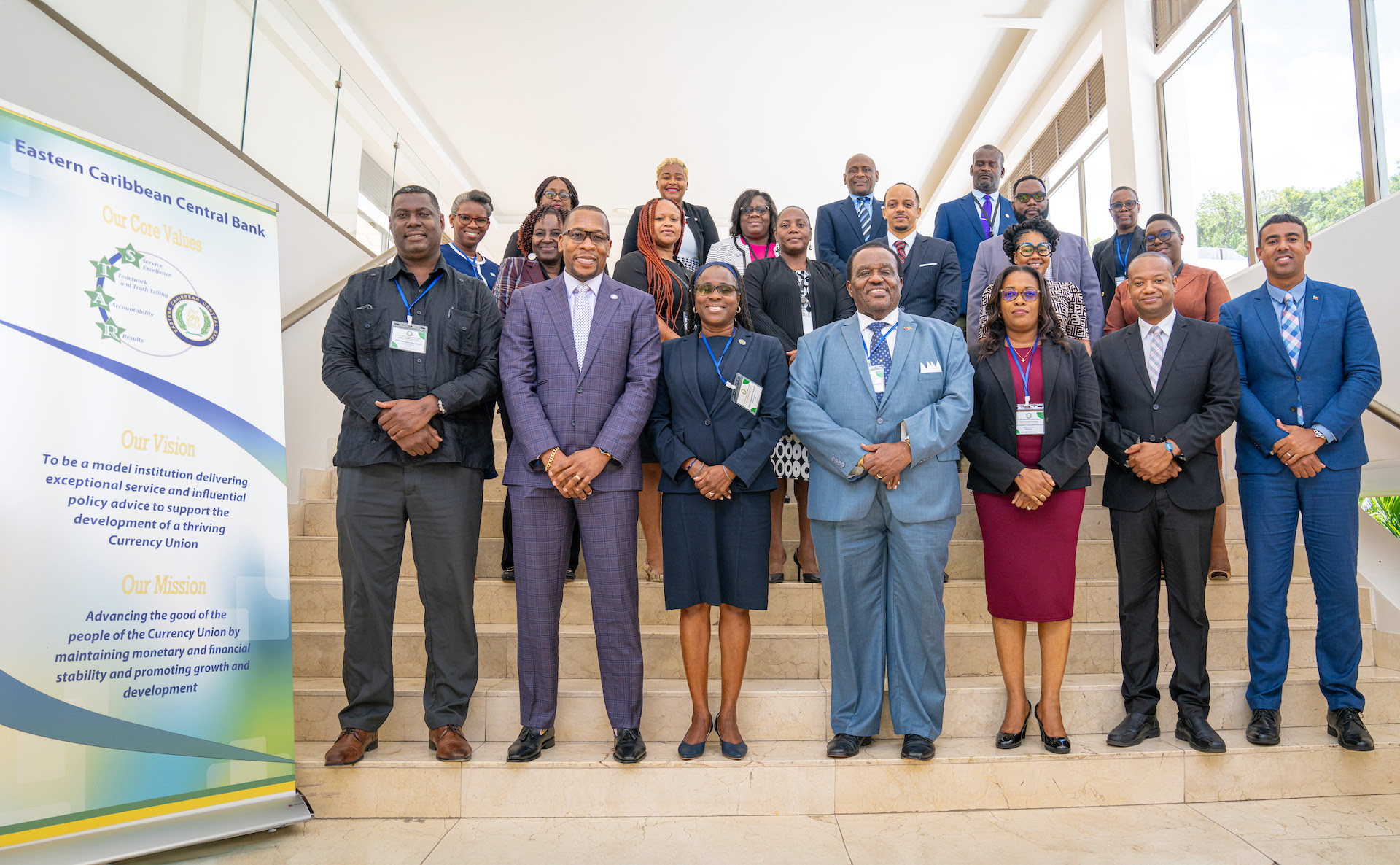Una versión en español de este comentario sigue a continuación.
In international diplomatic circles, Haiti is on everyone’s lips but not in actions that could urgently remedy the suffering of the Haitian people.
Similarly, within Haiti and its diaspora, Haiti’s tragic situation is constantly discussed but no viable solutions are proposed, nor are sustainable actions taken.
While this delay and inaction persists, gangs, which have already taken effective control of the country, are fashioning an accord amongst themselves on the theme of “Living together”. It is an unholy pact in which the gangs are sharing the spoils of power and collaborating to do so, ignoring the laws of the country. They are also dictating political actions through threats and intimidation.
Hence, the present unelected Prime Minister, Dr. Ariel Henry, has been warned that if he returns to Haiti, he will be executed. Henry is reportedly trapped in Puerto Rico, unable to find a way to re-enter Haiti after attending a meeting of CARICOM Heads of Government in Guyana, and then travelling to Kenya to sign a reciprocal security agreement on March 1. While he was in New York on his way back to Haiti, the gangs attacked the main penitentiary, releasing approximately 4,500 inmates, including prominent gang members.
The extraordinarily gruesome warning to Dr. Henry has been made by a gang leader, Jimmy Chérizier, also known as “Barbecue”. The death threat has been backed up by Guy Phillipe who was recently released from a U.S. prison after conviction for human trafficking and is now heading a political group.
Significantly, apart from the members of the Cabinet that Henry appointed, not one person or group in Haiti has called for his return to the country. Of further significance, he is yet to be offered safe passage from U.S. territory to Haiti by the U.S. government.
In reality, Dr. Henry was never accepted, except by the U.S., as the best person to lead Haiti. He strengthened his unacceptability within Haiti, when he reneged on the terms of agreements on governance, which he made on September 11, 2021 and December 21, 2022 with private sector groups and non-governmental organizations. He demonstrated neither the interest nor the capacity to spearhead a national effort for a “Haitian solution” to the crisis for which the international community repeatedly called.
Henry made his first request for an international force to help national police fight gangs, in October 2022. At that time, the gangs were a growing threat; they had not yet reached the powerful dimensions that exist now. However, within Haiti, Henry’s call was seen as a move to get external military help to maintain his own grip on power. Consequently, those opposed to him rejected any external intervention, using many guises to justify their position.
Externally, the government of El Salvador had offered to help, based on its own success with curbing gangs by methods, judged by some, as abusing the human rights of persons it imprisoned. The El Salvador offer was not encouraged and, eventually it fell away.
No other government sought to get involved. Meanwhile, the U.S. government pursued a policy of maintaining support for Dr. Henry based on hope rather than confidence in his capacity to build a strong coalition to govern the country. That hope is now dashed.
Following the release of prison inmates and attacks on other important public installations, Haiti is now under gang control. Airlines have stopped flights into the country and cargo ships have taken similar action as gangs loot containers at the port.
Amid all this, the United Nations Security Council (UNSC), influenced by rivalries between veto powers, failed to prioritize Haiti’s wellbeing, choosing not to deploy a U.N. force. Instead, they approved a voluntary Multinational Security Support (MSS) Mission, not funded by the U.N., leaving the U.S. to spearhead recruitment and funding efforts, which have largely been unsuccessful.
Only Kenya, requiring $200 million for its participation, has agreed to contribute troops to the MSS Mission. The U.S. has struggled to meet its $200 million commitment due to a deadlock in the U.S. Congress over allocating $100 million, half of the promised contribution by the U.S. government. Consequently, the launch of the MSS Mission appears increasingly unlikely.
As Haiti’s turmoil deepens, the U.S. appears to support Finance Minister, Michel Patrick Boisvert, as Henry’s successor. This potential U.S. endorsement of another unelected leader will undoubtedly face opposition from various Haitian stakeholders.
The real answer to the current Haitian crisis continues to remain in the hands of Haitians. All of its aspiring leaders and all the rival organisations for political and economic supremacy must put aside their ambitions for personal power and stand behind the empowerment of Haiti. They have to resolve to postpone their rivalry until transparent, free and fair elections can be held in normalized conditions.
Meanwhile, they must act urgently to coalesce behind an agreed interim President based on the last functioning Constitution of the Republic, and to agree to the appointment of a Prime Minister, on whom they can also agree, for the formation of a national transitional government drawn from the talents that exist in the private sector, the NGO’s, the political parties and the diaspora.
They also need to agree on the term-limit of such a transitional government and its mandate, which should include any requests for international assistance. The structure for such an agreement already exists in the recent Resolution of January 2024, which emerged from the National Congress of Transition, as well as in other previously agreed strategies such as the Montana Accord of 2021.
If the various Haitian parties cannot act as genuine patriots for their country by setting aside ambitions and rivalry for at least two years, and by establishing a genuine government of national unity on behalf of the Haitian people, they will condemn their nation to external intervention of the kind that has contributed for more than 200 years to their present plight. They will have only themselves to blame.
By rallying together to form a united front and advocating for democratic renewal, including ways to stop gang lawlessness, Haitians have the power to proudly present to the world the ‘Haitian solution’ they have long sought. Such a momentous shift towards a consensus-built, authentic Haitian pathway could redefine the nation’s future and command the respect and support of the global community.
It’s time for Haiti to seize this critical opportunity; to forge a future grounded in legitimacy and unity that the international community cannot ignore.
(The writer is Antigua and Barbuda’s Ambassador to the United States and the Organization of American States. The view is entirely his own.)
————————————–
La urgencia de la unidad interna para reclamar Haití
Por Sir Ronald Sanders
En los círculos diplomáticos internacionales, Haití está en boca de todos, pero no en acciones que podrían remediar urgentemente el sufrimiento del pueblo haitiano.
De manera similar, dentro de Haití y su diáspora, la trágica situación de Haití se discute constantemente, pero no se proponen soluciones viables ni se toman acciones sostenibles.
Mientras persiste este retraso e inacción, las bandas, que ya han tomado el control efectivo del país, están forjando un acuerdo entre ellas bajo el tema de “Vivir juntos”. Es un pacto impío en el que las bandas están compartiendo los botines de poder y colaborando para hacerlo, ignorando las leyes del país. También están dictando acciones políticas a través de amenazas e intimidación.
Por lo tanto, al actual primer ministro no electo, Dr. Ariel Henry, se le ha advertido que si regresa a Haití, será ejecutado. Se informa que Henry está atrapado en Puerto Rico, incapaz de encontrar una manera de reingresar a Haití después de asistir a una reunión de Jefes de Gobierno del CARICOM en Guyana, y luego viajar a Kenia para firmar un acuerdo de seguridad recíproco el 1 de marzo. Mientras estaba en Nueva York de camino de regreso a Haití, las bandas atacaron la penitenciaría principal, liberando aproximadamente a 4,500 reclusos, incluidos miembros destacados de bandas.
La advertencia extraordinariamente espantosa al Dr. Henry ha sido hecha por un líder de banda, Jimmy Chérizier, también conocido como “Barbecue”. La amenaza de muerte ha sido respaldada por Guy Phillipe, quien fue liberado recientemente de una prisión de EE.UU. después de ser condenado por tráfico de personas y ahora lidera un grupo político.
Significativamente, aparte de los miembros del gabinete que Henry nombró, nadie en Haití ha pedido su regreso al país. Además, aún no se le ha ofrecido un paso seguro desde el territorio de EE.UU. a Haití por parte del gobierno de EE.UU.
En realidad, el Dr. Henry nunca fue aceptado, excepto por EE.UU., como la mejor persona para liderar Haití. Reforzó su inaceptabilidad dentro de Haití cuando incumplió los términos de los acuerdos de gobernanza que hizo el 11 de septiembre de 2021 y el 21 de diciembre de 2022 con grupos del sector privado y organizaciones no gubernamentales. Demostró ni el interés ni la capacidad para liderar un esfuerzo nacional para una “solución haitiana” a la crisis que la comunidad internacional llamó repetidamente.
Henry hizo su primer pedido de una fuerza internacional para ayudar a la policía nacional a luchar contra las bandas, en octubre de 2022. En ese momento, las bandas eran una amenaza creciente; aún no habían alcanzado las dimensiones poderosas que existen ahora. Sin embargo, dentro de Haití, el llamado de Henry fue visto como un movimiento para obtener ayuda militar externa para mantener su propio control sobre el poder. En consecuencia, aquellos opuestos a él rechazaron cualquier intervención externa, utilizando muchos disfraces para justificar su posición.
Externamente, el gobierno de El Salvador había ofrecido ayuda, basada en su propio éxito al controlar las bandas por métodos, juzgados por algunos, como abusivos de los derechos humanos de las personas que encarceló. La oferta de El Salvador no fue alentada y, eventualmente, se desvaneció.
Ningún otro gobierno buscó involucrarse. Mientras tanto, el gobierno de EE.UU. siguió una política de mantener el apoyo al Dr. Henry basado en la esperanza más que en la confianza en su capacidad para construir una coalición fuerte para gobernar el país. Esa esperanza ahora está destrozada.
Tras la liberación de reclusos de prisión y ataques a otras importantes instalaciones públicas, Haití está ahora bajo control de bandas. Las aerolíneas han detenido los vuelos al país y los barcos de carga han tomado acciones similares mientras las bandas saquean contenedores en el puerto.
En medio de todo esto, el Consejo de Seguridad de las Naciones Unidas (CSNU), influenciado por rivalidades entre potencias con derecho a veto, no logró priorizar el bienestar de Haití, optando por no desplegar una fuerza de la ONU. En su lugar, aprobaron una Misión de Apoyo a la Seguridad Multinacional (MSS) voluntaria, no financiada por la ONU, dejando a EE.UU. liderar los esfuerzos de reclutamiento y financiación, que en gran medida han sido infructuosos.
Solo Kenia, requiriendo $200 millones por su participación, ha acordado contribuir tropas a la Misión MSS. EE.UU. ha luchado para cumplir con su compromiso de $200 millones debido a un punto muerto en el Congreso de EE.UU. sobre la asignación de $100 millones, la mitad de la contribución prometida por el gobierno de EE.UU. En consecuencia, el lanzamiento de la Misión MSS parece cada vez más improbable.
A medida que se profundiza la agitación en Haití, EE.UU. parece apoyar al Ministro de Finanzas, Michel Patrick Boisvert, como sucesor de Henry. Este posible respaldo de EE.UU. a otro líder no electo sin duda enfrentará oposición de varios actores haitianos.
La verdadera respuesta a la crisis haitiana actual sigue estando en manos de los haitianos. Todos sus líderes aspirantes y todas las organizaciones rivales por la supremacía política y económica deben dejar de lado sus ambiciones de poder personal y apoyar el empoderamiento de Haití. Deben resolver posponer su rivalidad hasta que se puedan celebrar elecciones transparentes, libres y justas en condiciones normalizadas.
Mientras tanto, deben actuar con urgencia para unirse detrás de un presidente interino acordado basado en la última Constitución funcional de la República, y acordar el nombramiento de un Primer Ministro, en quien también puedan acordar, para la formación de un gobierno transicional nacional extraído de los talentos que existen en el sector privado, las ONG, los partidos políticos y la diáspora.
También necesitan acordar el límite de mandato de dicho gobierno transicional y su mandato, que debería incluir cualquier solicitud de asistencia internacional. La estructura para tal acuerdo ya existe en la reciente Resolución de enero de 2024, que surgió del Congreso Nacional de Transición, así como en otras estrategias previamente acordadas como el Acuerdo de Montana de 2021.
Si las diversas partes haitianas no pueden actuar como verdaderos patriotas por su país dejando de lado ambiciones y rivalidades por al menos dos años, y estableciendo un verdadero gobierno de unidad nacional en nombre del pueblo haitiano, condenarán a su nación a la intervención externa del tipo que ha contribuido durante más de 200 años a su difícil situación actual. Solo tendrán la culpa ellos mismos.
Al unirse para formar un frente unido y abogar por la renovación democrática, incluidas formas de detener la ilegalidad de las bandas, los haitianos tienen el poder de presentar orgullosamente al mundo la ‘solución haitiana’ que han buscado durante mucho tiempo. Tal cambio trascendental hacia un camino haitiano auténtico y construido por consenso podría redefinir el futuro de la nación y comandar el respeto y el apoyo de la comunidad global.
Es hora de que Haití aproveche esta oportunidad crítica; forjar un futuro basado en la legitimidad y la unidad que la comunidad internacional no pueda ignorar.




